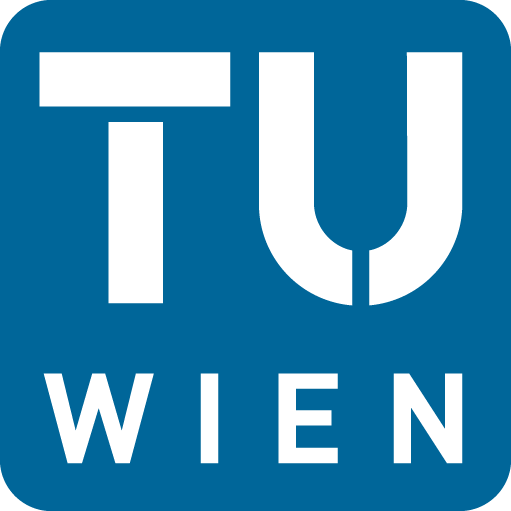|
| | Preview | Author(s) | Title | Type | Issue Date |
| 121 | | Banjai, Lahel ; Melenk, Jens Markus ; Schwab, Christoph | hp-FEM for the spectral fractional Laplacian in polygons | Präsentation Presentation | 2021 |
| 122 | | Innerberger, Michael ; Praetorius, Dirk | Instance-optimal goal-oriented adaptivity | Artikel Article  | 2021 |
| 123 | | Faustmann, Markus ; Melenk, Jens Markus ; Praetorius, Dirk | Quasi-optimal convergence rate for an adaptive method for the integral fractional Laplacian | Artikel Article  | 2021 |
| 124 | | Becker, Roland ; Innerberger, Michael ; Praetorius, Dirk | Optimal convergence rates for goal-oriented FEM with quadratic goal functional | Artikel Article  | 2021 |
| 125 | | Faustmann, Markus ; Karkulik, Michael ; Melenk, Jens Markus ; Praetorius, Dirk | Finite Element Method for Fractional Diffusion - Recent Results | Präsentation Presentation | 2021 |
| 126 | | Amodio, Pierluigi ; Arnold, Anton ; Levitina, Tatiana ; Settanni, Giuseppina ; Weinmüller, Ewa B. | On the Abramov approach for the approximation of whispering gallery modes in prolate spheroids | Artikel Article  | 2021 |
| 127 | | Faustmann, Markus ; Melenk, Jens Markus ; Parvizi, Maryam | On the stability of Scott-Zhang type operators and application to multilevel preconditioning in fractional diffusion | Artikel Article  | 2021 |
| 128 | | Angleitner, Niklas ; Faustmann, Markus ; Melenk, Jens Markus | Approximating inverse FEM matrices on non-uniform meshes with H-matrices | Artikel Article  | 2021 |
| 129 | | Kvasnicka, Dieter ; Roda, Giovanna | Big Data on the Vienna Scientific Cluster | Konferenzbeitrag Inproceedings  | 2021 |
| 130 | | Gambi, José M. ; Garcia del Pino, Maria L. ; Mosser, Jonathan ; Weinmüller, Ewa | Computational procedure to increase the shooting accuracy of swarms od space-based laser trackers to deflect NEOs by means of ablation | Präsentation Presentation | 2021 |
| 131 | | Haberl, Alexander ; Praetorius, Dirk ; Schimanko, Stefan ; Vohralík, Martin | Convergence and quasi-optimal cost of adaptive algorithms for nonlinear operators including iterative linearization and algebraic solver | Artikel Article  | 2021 |
| 132 | | Heid, Pascal ; Praetorius, Dirk ; Wihler, Thomas P. | Energy contraction and optimal convergence of adaptive iterative linearized finite element methods | Artikel Article  | 2021 |
| 133 | | Bespalov, Alex ; Praetorius, Dirk ; Ruggeri, Michele | Two-level a posteriori error estimation for adaptive multilevel stochastic Galerkin FEM | Artikel Article  | 2021 |
| 134 | | Rieder, Alexander ; Sayas, Francisco-Javier ; Melenk, Jens Markus | Runge-Kutta approximation for C₀-semigroups in the graph norm with applications to time domain boundary integral equations | Artikel Article  | 2021 |
| 135 | | Melenk, Jens M. ; Sauter, Stefan A. | wavenumber-explicit hp-FEM analysis for Maxwell's equations with transparent boundary conditions | Artikel Article  | 2021 |
| 136 | | Gantner, Gregor ; Haberl, Alexander ; Praetorius, Dirk ; Schimanko, Stefan | Rate optimality of adaptive finite element methods with respect to the overall computational costs | Artikel Article  | 2021 |
| 137 | | Markus Melenk, Jens ; Rieder, Alexander | hp-FEM for the fractional heat equation | Artikel Article  | 2021 |
| 138 | | Melenk, Jens Markus ; Rieder, Alexander | On superconvergence of Runge-Kutta convolution quadrature for the wave equation | Artikel Article  | 2021 |
| 139 | | Baumann, Phillip ; Sturm, Kevin | Adjoint-based methods to compute higher-order topological derivatives with an application to elasticity | Artikel Article  | 2021 |
| 140 | | Dick, Josef ; Feischl, Michael | A quasi-Monte Carlo data compression algorithm for machine learning | Artikel Article  | 2021 |
